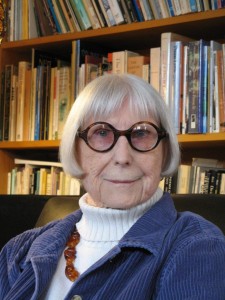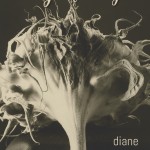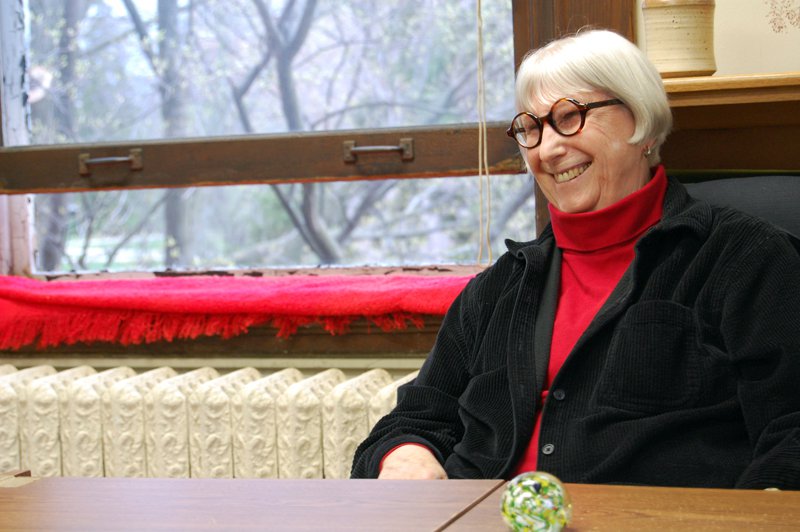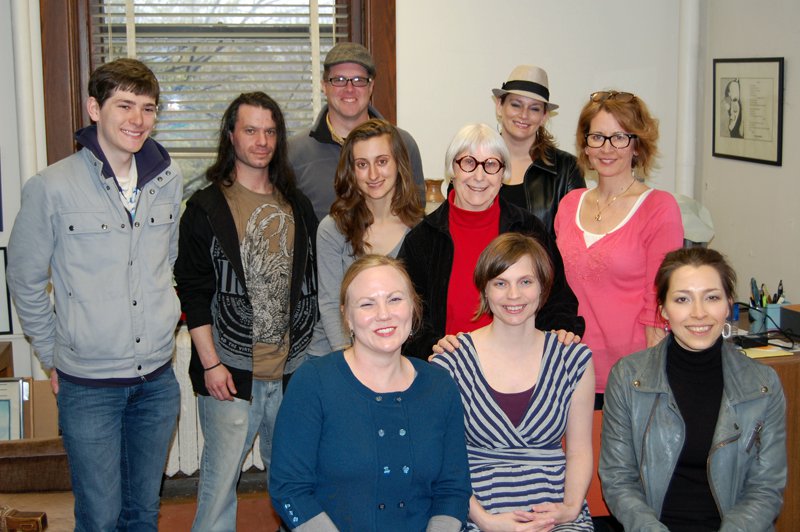 “Marcel, that soufflé is a poem!” This example, given in a Webster’s dictionary of the idiomatic use of the word “poem,” illustrates how far we have come from the traditional definition of poetry, often using the words “poem” or “poetry” to refer to anything exquisite or refined. We sometimes forget that Western poetry until the 20th century was defined by metrical patterns. However, while Poets, like myself, who began writing at mid-century, still write sonnets and other formal poetry, nearly all of us have centered ourselves in free verse, hoping to discover what Ezra Pound called “a new measure.” This is a sampling of my quest to pattern new measures in poetry.
“Marcel, that soufflé is a poem!” This example, given in a Webster’s dictionary of the idiomatic use of the word “poem,” illustrates how far we have come from the traditional definition of poetry, often using the words “poem” or “poetry” to refer to anything exquisite or refined. We sometimes forget that Western poetry until the 20th century was defined by metrical patterns. However, while Poets, like myself, who began writing at mid-century, still write sonnets and other formal poetry, nearly all of us have centered ourselves in free verse, hoping to discover what Ezra Pound called “a new measure.” This is a sampling of my quest to pattern new measures in poetry.
I started in Berkeley in the nineteen-fifties as an undergraduate trying to invent forms that were visible, but not specifically metrical. My first successful poem was designed by anagram. I took the words of my first line and spelled them out as the first letters beginning each line of the poem, which I’ll read now.
Justice Is Reason Enough
He, who once was my brother, is dead by his own hand.
Even now, years later, I see his thin form lying on the sand
where the sheltered sea washes against those cliffs
he chose to die from. Mother took me back there every day for
over a year and asked me, in her whining way, why it had to happen.
over and over again — until I wanted
never to hear of David any more. How
could I tell her of his dream about the gull beating its wings
effortlessly together until they drew blood?
Would it explain anything, and how can I tell
anyone here about the great form and its beating wings. How it
swoops down and covers me, and the dark tension leaves
me with blood on my mouth and thighs. But it was that dream,
you must know, that brought my tight, sullen little
brother to my room that night and pushed his whole taut body
right over mine until I yielded, and together we yielded to the dark tension.
Over a thousand passing years, I will never forget
him, David, who was my brother, who is dead. Mother asked me why
every day for a year; and I told her justice. Justice is
reason enough for anything ugly. It balances the beauty in the world.
c. 1958, reprinted in EMERALD ICE
If you had the poem in front of you, while looking for the anagram, you would notice two failures of pattern. I considered this a flaw because at that time, I did not yet realize the heart of what has become Wakoski poetics – that the pattern, which is important in this poem is not the anagram but the multiple use of trope – especially, that of the gull which is a substitute for a swan in the rape-myth of Leda and the swan – and the beginning of my own personal mythology, the on-going search for beauty, and the mythic twin brother, a part of myself who is lost or has to be destroyed.
**
When I was living in New York City in the sixties, I discovered a traditional form called the sestina, which had originally been an iambic form. But co-opted by many contemporary poets, it became simply a six-stanza poem, each stanza containing six lines, with a 3-line envoi. All the lines of all the stanzas ended with the same six words, in permutation, until they came back to the same order in the envoi and were then repeated. I loved the fact that I could make long or short lines, with my own rhythms, but the pattern was commandingly there, defined by the repeating words, which did not have to rhyme. Listen for the six repeating words.
Sestina From The Home Gardener
These dried-out paint brushes which fell from my lips have been removed
with your departure; they are such minute losses
compared with the light bulb gone from my brain, the sections
of chicken wire from my liver, the precise
silver hammers in my ankles, which delicately banged and pointed
magnetically to you. Love has become unfamiliar
and plenty of time to tend the paint brushes now. Once unfamiliar
with my processes. Once removed
from that sizzling sun, the ego, to burn my poet shadow to the wall, I pointed,
I suppose, only to your own losses,
which made you hate that 200 pound fish called marriage. Precise-
ly, I hate my life, hate its freedom, hate the sections
of fence stripped away, hate the time for endless painting, hate the sections
of my darkened brain that wait for children to snap on the light, the unfamiliar
corridors of my heart with strangers running in them, shouting. The precise
incisions in my hip to extract an image, a dripping pickaxe or palm tree removed,
and each day my paint brushes get softer and cleaner – better tools, and losses
cease to mean loss. Beauty, to each eye, differently pointed.
I admire sign painters and carpenters. I like that black hand pointed
up a drive-way whispering to me, “The Washingtons live in these sections,”
and I explain autobiographically that George Washington is sympathetic to my losses;
His face or name is everywhere. No one is unfamiliar
with the American dollar, and since you’ve been removed
from my life, I can think of nothing else. A precise
replacement for love can’t be found. But art and money are precise-
ly for distraction. The stars popping out of my blood are pointed
nowhere. I have removed
my ankles so that I cannot travel. There are sections
of my brain growing teeth and unfamiliar
hands tie strings through my eyes. But there are losses
of the spirit like vanished bicycle tires and losses
of the body, like the whole bike, every precise
bearing, spoke, gear, even the unfamiliar
handbrakes, vanished. I have pointed
myself in every direction, tried sections
of every map. It’s no use. The real body has been removed.
Removed by the ice tongs. If a puddle remains, what losses
can those sections of glacier be? Perhaps a precise
count of drops will substitute the pointed mountain, far away, unfamiliar?
INSIDE THE BLOOD FACTORY, Doubleday, 1968; reprinted in EMERALD
ICE, Black Sparrow Press, 1988
This poem was written after I had read an article in the NEW YORK TIMES called “George Washington the Home Gardener,” (thus, “Sestina from the Home Gardener”) and because I had started writing what would be the second series of my poems of personal mythology, The George Washington Poems, I had actually engaged in what was to become my primary act of patterning in my poems: creating structures whose tropes were images, metaphors and ideas from traditional mythology that I had co-opted into my own versions of mythic figures. Not only was I using the American myth of Washington as the father of our country but also, in this poem, I was alluding to the largest of all myths in Western civilization, The Garden Myth, the story of our removal from Paradise, which is also for me an archetypal story about the power of women, thus love or the loss of it – that being the theme of the poem.
**
During that decade of the sixties when I lived in New York, I found myself longing for a device or structure, other than traditional metrics, that would make my poetry more obviously musical. Narrative is in the origins of my poetry, but after writing 100 sonnets in high school and deciding that I was not a lyric poet, I still longed for that lyric intensity I found in Robinson Jeffers and Garcia Lorca; that much later, I found in Walt Whitman.
I have always used repetition, a traditional musical device, but when I stumbled on chant and incantation, I knew that this technique was going to be part of my “new measure.” Over the years I have written a number of chant-poems, the most infamous being “Dancing On The Grave of a Son of a Bitch,” and my favorites are “Sun” and “Blue Monday.” However, this poem is an homage to Jerome Rothenberg’s chanting.
Silver Coyote Song
(In the spirit of Jerry Rothenberg)
Well and what were you doing in the woodshed?
Well and what does a fox need with wood?
Well and no, I see you are not a fox.
Well and maybe you are related to a fox.
There is a voice which I heard
in the Southern California hills, when
the gopher snake stretched itself like a branch
across the road, when I ate oranges whose thin skins
were smudged with soot from the earlier cool nights.
not like wolves, or dogs. Not my father’s voice
when he returned across the front yard from his battleship.
The moon has a voice like a silver charm bracelet
and though California is the Golden State, the trail I left
there is silver, slippery like the sled marks of mollusks, and I
heard the moon every night whispering twisted foil
messages. Coyotes in the hills
everyone said, but the voice I heard
had nothing to do with tricks or lobo smiles.
Well and what was he doing
riding his silver motorcycle to your door?
Well and who spoke your name, since you spoke his
with your silver charm bracelet voice?
Well and I don’t believe that coyote
whatever he tells me, Well and I don’t
believe in your Silver Surfer either.
There is a voice, that’s all I can say.
Silver baby shoes, the only charm. Silver
when you open your eyes. Silver
when the coyote slips behind the pepper tree
and runs ashy, grey-eyed, or invisible
away from your yard.
Well and who follows the motorcycle
leaving a vapor of silver feathers in the night?
Silver feathers, silver feathers, silver feathers,
in the night.
From JASON THE SAILOR, 1993
George Washington, the King of Spain, The Motorcycle Betrayer, Jason & Medea, The Diamond Dog, my patterns, my tropes. I’d like to finish this reading of poems that illustrate my lifetime meander to find a new measure through word patterning, through repetition, including chant and incantation, and through creating personal mythologies that function using trope that leads to revelation with two poems that will be included in my new collection, BAY OF ANGELS that will be published in October. This first poem is also one that brings me a bit of pleasure because after all these years of writing, publishing, and being nominated for Pushcart Prizes (for small press publications) but never winning one – this poem got selected and was published in their anthology this year.
“Oysters with Lemon in Monmartre”
I found this line jotted on a scrap of paper, thin as
Dover Sole, written in black fountain pen ink
that made the words seem as if they
had been torn from a letter.
And all this autumn afternoon, with the deciduous
trees glowing like glasses of freshly poured Meursault or
Nouveau Beaujolais, I have smelled the lemon,
picked once in California, then cut into wedges and squeezed over
the oyster, itself bathed in a liqueur
of thick brine,
I, who don’t eat oysters,
yet remembering Brittany, not Monmartre,
and Wilton telling me, as my husband just smiled – knowing me so
well – “Diane, you can’t leave here without tasting
these oysters.”
It was a shower of meteors. Summer Perseids.
Eating an oyster
is like standing in front of a mirror
wearing the Helmet of Darkness
while swallowing your pride – you, a California girl who
got a tan over her oyster-white skin,
but could not swim, who wanted to
change the rules of beauty but could not accept
the consequences.
In any mirror, you always face the loss
of memory; mirrors retain
nothing of what they have seen.
That loss is not only the taste of the oysters in my mouth in Brittany.
It is always imagining the oysters’ textures,
not as old cobwebs, but as
Wilton’s or Robert’s salty slurp,
each mouthful, embellished with the liquid wink of a California lemon.
Those numinous words,
“oysters with lemon in Monmartre,”
like David’s footprints on Pavese’s lawn
are a scrap of the missing
from my un-oystered world,
their black-as-deliquesced-mushrooms-ink,
scripted
on an errant fragment of paper, chalky as the Cliffs of Dover.
My final piece was written after I performed in a poetry festival, hosted at UC, Riverside. While there, I had wandered for a while along the corridors of the English Department building and found them hung with striking, large black and white photos of writers. I was surprised to find one, featuring my long-haired, young-girl-self at some now-forgotten California poetry reading. The experience was enhanced later when going to a reception and emerging suddenly from a dark elevator onto a sunset-flooded lanai along the building because, I guess, I had also forgotten how spectacular a Southern California setting sun can be. The poem — exploring, of course, one of my patterns: William Carlos Williams’ Modernist gift to me, the trope of ascent and descent from Dionysian myth. This is
Persephone Steps Off the Elevator
At the 4th Floor
and emerges again onto the adobe walled landing,
the Southern California horizon wide as an avalanche
exposing parrot-wing cerulean, and cobalt
streaking into the molten crown of evening’s still golden
approach.
Returning to light,
even twilight, makes her shadow gasp with
recognition. Here on the 4th floor she seems still
long-haired and trusting, the speckled-blue egg of her
gaze is open to any invitation, as it was before
she became the Queen of Night,
pomegranate-smeared
and cruel.
If only she had not returned,
ascended to this balcony that obscures the long
corridor, on the walls of which hang photos
showing a girl
holding a blue flower; if
only she didn’t have to look
at the radiant sky, its
beauty reminding her of everything she’s either
lost or never had.
In the moment of stepping into light
she does not know,
for the first time,
if beauty is,
or ever can be
enough.




